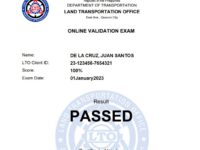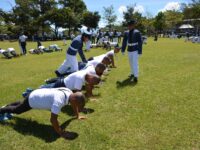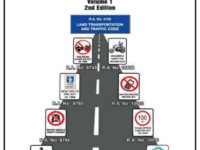Most of all the Filipinos are desired to work in their government. Based on Jobstreet’s October 2017 survey data, almost 80% of 16, 425 respondents expressed their desired to work in the government, you are one of this?
By working in the Philippines government, you will benefit the premiums that the government offers to their workers such as competitive salary, career growth, retirement plan, and also bonuses and salary increases. However, working in the government will go through the hiring process that required to pass the Civil Service Exam to become eligible to do Civil Service in the country.
What is the Civil Service Exam?
Civil Service Examination is a test to determine who’s eligible for the civil service job administered by the Civil Service Commission (CSC).
There are two methods of Civil Service Exam to choose:
- Paper and pencil test (CSC-PPT) – a traditional method that you need to shade the circle the correct answer in the answer sheets by using a pen. Also, this method gives you a chance to change your answer.
- Computerized examination (CSC-COMEX) – is the innovative method faster, easier, and efficient to take a civil service exam by using a computer. With the help of the Advanced Science and Technology Institute (ASTI) that CSC made this possible.
Also, there are two levels that you should first decide which type of CSE you’ll take:
- exam – upon passing this exam, it allows you to take jobs in first-level government positions only such as clerical, trades, crafts, and custodial service positions that only require less than four years of a college education. The coverage of this exam is clerical operations, grammar/correct usage, numerical reasoning, paragraph organization, reading comprehension, spelling, and vocabulary.
- Professional Level exam – it’s more difficult exam than the subprofessional level exam, upon passing this exam, will qualify you for both first-level and second-level government positions such as scientific, technical, and professional positions up to Division Chief level which requires at least a bachelor’s degree (four years of college education) to qualify that position. The coverage of this exam is an analogy, grammar/correct usage, logic, numerical reasoning, paragraph organization, reading comprehension, and vocabulary.
What are the eligibility requirements of the Civil Service Exam?
According to the Civil Service Commission (CSC), to become allowed to take the exam you must qualify the requirements below:
- A Filipino citizen
- At least 18 years old
- No criminal record (civil service examination irregularity, dishonesty, drunkenness, immoral conduct, illegal drugs)
- No dismissal record from the government or military service
- Never taken the same-level of CSE within three months prior the exam date
- Filipinos with dual citizenship may also apply and take the civil service exam if they present and submit a copy of the Certification of Retention/Reacquisition of Philippine Citizenship from the Bureau of Immigration.
If you have that qualification you can take the exam even you are a High School /K-12 graduate. However, there’s are individual that exempted to take the exam and ready/qualified to work in the government as public servants such as:
- Board/Bar Passer – administered by the Supreme Court and the Professional Regulation Commission.
- Barangay officials who have completed their terms of office.
- Honor Graduate Eligibility that recognized by the Commission on Higher Education and State Colleges with baccalaureate degree duly approved by its Board of Trustees.
- Sanggunian Member – Members of the Sangguniang Bayan, Sangguniang Panlungsod and Sangguniang Panlalawigan have conferred the appropriate CSE Eligibility. For the complete list, you can visit the CSC website.
What are the application requirements of the Civil Service Exam?
If you think that you qualify the eligibility requirements given by the CSC, your next step is to prepare the following application requirements to take the Civil Service Exam and pass it on the Civil Service Commission near you.
- Completely filled up CSE application for
- Four (4) colored, passport-size ID photos with white background and your name on and it should be taken within three months before the application date.
- An original and photocopy of your valid ID
- Also, an examination fee (P500.00)
How to take the Civil Service Exam?
Taking a Civil Service Exam is much likely taking a university entrance exam. You must be prepared and carry important things like a pen for Paper and pencil test (CSC-PPT), valid ID, and the official receipt that teller gives you when you paid the examination fee. And go to the nearest Civil Services Commission testing center.
There’s a time limit to answer the exam, for the Professional Level exam are consists of 170 items you should answer within three hours and ten minutes while in the Subprofessional level it has 165 items and a shorter time limit of two hours and forty minutes, this time limit implemented in both Paper and pencil test (CSC-PPT) and Computerized examination (CSC-COMEX). The passing Rate of the Exam is 80% of the total score.
Where you can check the Civil Service Exam results?
For the result of the exam, you can check it by accessing the Online Civil Service Examination Result Generation System (OCSERGS). In the Paper and pencil test (CSC-PPT) it is around 60 days to the result came out while in the Computerized examination (CSC-COMEX) is about a week.
If you pass the exam you are eligible to become a public servant and you will get a Certification of Eligibility after a month when the result release. To claim your Certification of Eligibility you bring your valid ID and the application official receipt to the CSC office near you.









0 Comments